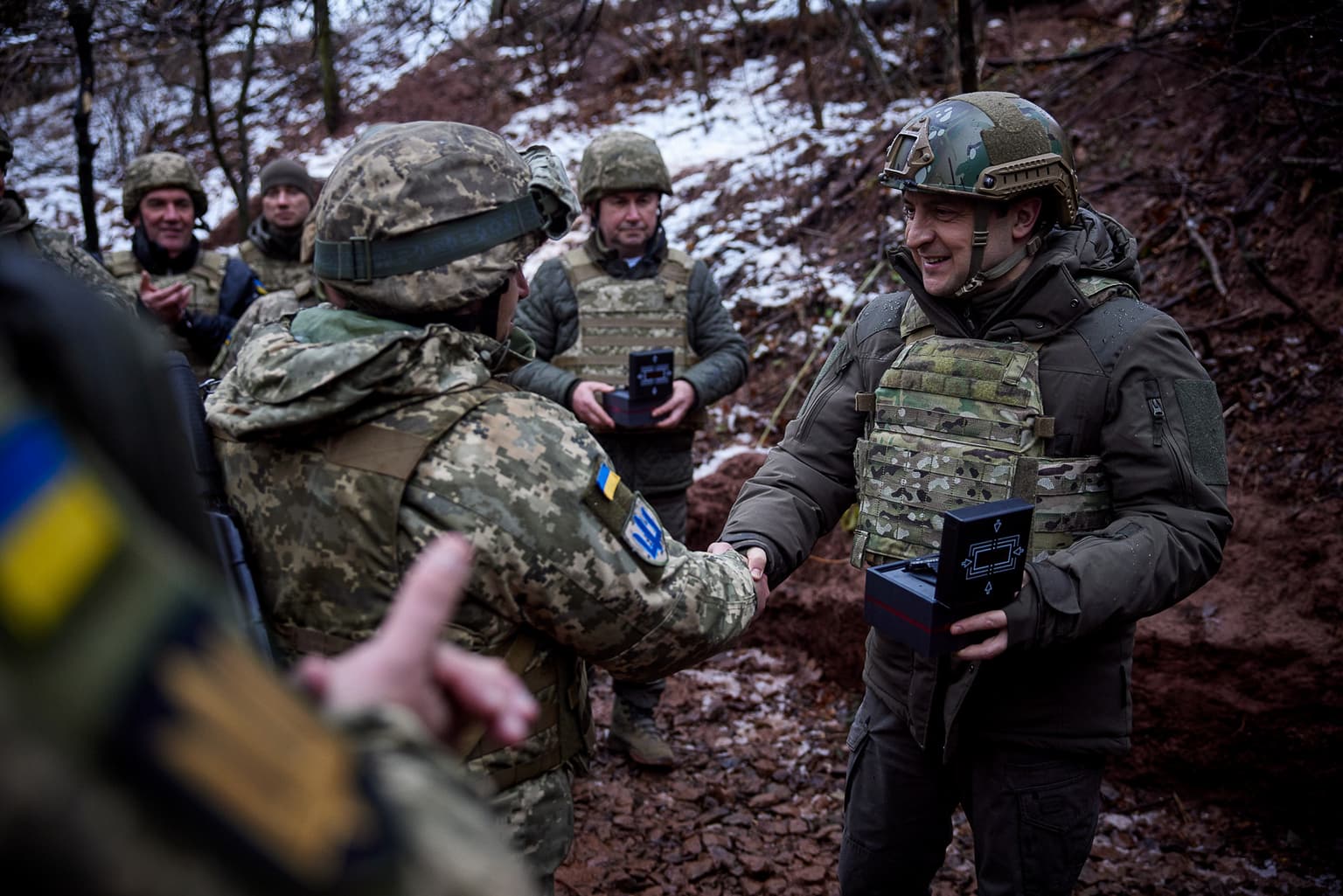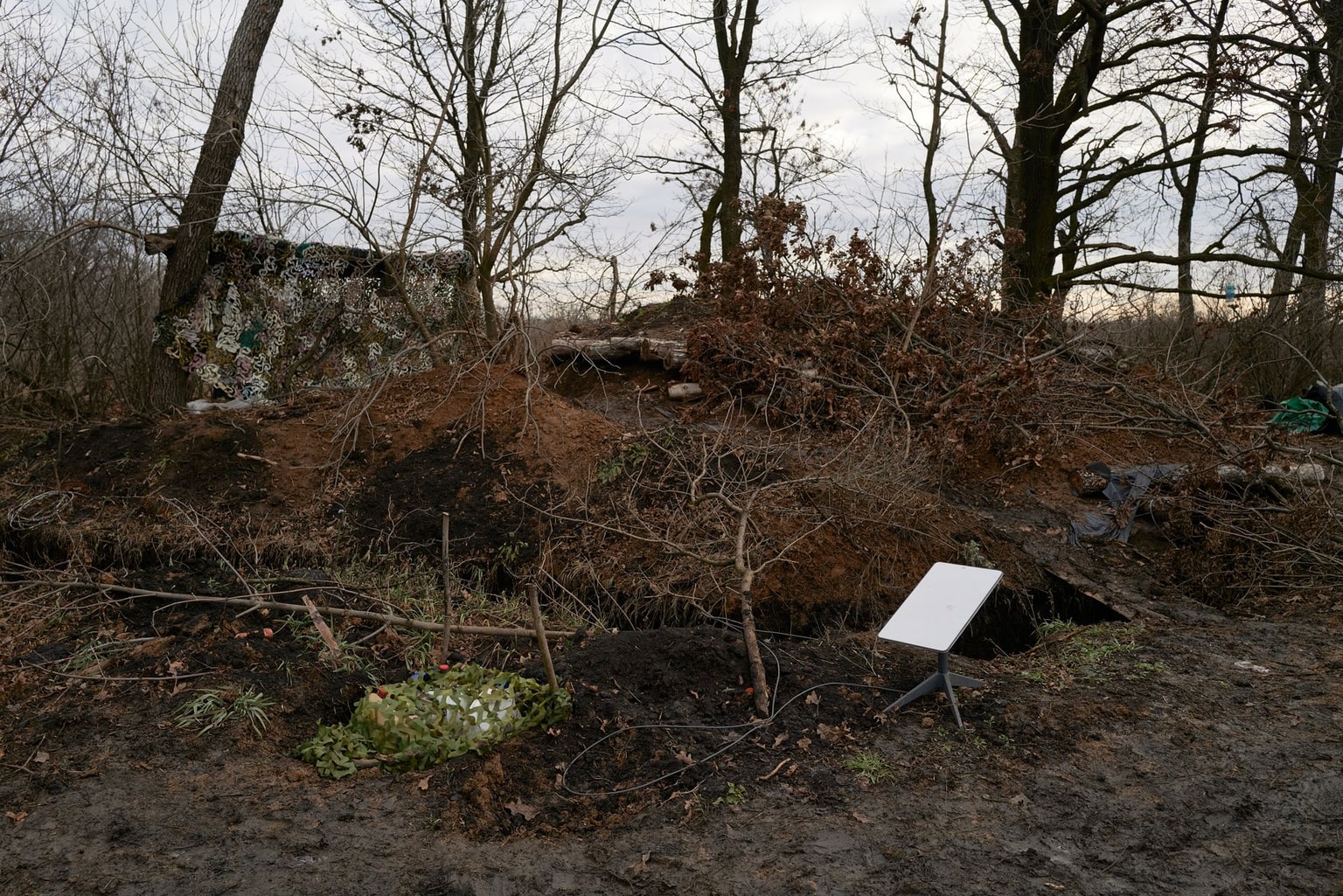James Batchik & Doug Klain: It’s time for Europe to defend Ukraine — and itself

The frightening risk of Europe’s most devastating war in nearly 80 years is growing ever more real as the United States warns that Russia could launch a massive new invasion in Ukraine “on very short notice” and readies NATO forces to deploy in Eastern Europe. The catastrophic effects of a dramatic escalation in the Kremlin’s eight-year war on Europe’s frontline would profoundly affect the European community—and all Europeans should be stepping up to defend Ukraine and themselves from Putin’s aggression.
While the European Union has too few tools and too many divisions to immediately and tangibly aid a country under imminent threat, that does not mean European Member States must sit on their hands as the future of Europe’s security architecture hangs in the balance. But if Europe wants a say as its fate is decided in the east, it must take meaningful action to support Ukraine’s defense. European countries willing to do so must match their political messaging with resolute action and can follow a model already showcased by the Baltic states and the non-EU member United Kingdom to provide support to Ukraine and deter Kremlin aggression.
Occupied by Moscow under both the Russian empire and the Soviet Union, the Baltic states have a deeply personal understanding of the consequences of unchecked Kremlin aggression—they have suffered under Moscow’s domination and know what is at stake in this crisis.
In December 2021, the ministers of defense of Estonia, Latvia, and Lithuania issued a joint communique outlining stalwart support for Ukraine, providing a clear-eyed assessment of the threat posed by Russia, and stating a ready willingness to provide “all available non-military and military instruments of power, including lethal weapons,” to Ukraine. Given this agreement and the Baltics shared history with Russia, it’s no wonder the Lithuanian defense minister was so enthusiastic to hand-deliver ammunition and other military supplies to Ukraine, and why the Baltics have been pulling out all the stops to aid Ukraine.
European governments should follow suit and provide their own aid to enhance deterrence and should do so in concert as the Baltic states have.
The UK has also shown what decisive action looks like—timed with the release of a powerfully direct essay by the British defense secretary on Kremlin misinformation and the threat to Ukraine and Europe, the UK announced on January 17 that it had begun shipments of anti-tank defensive weapons to Ukraine along with British soldiers to train Ukrainians in using them. Its round-the-clock C-17 shipments to Ukraine have rapidly proven a significant and high-profile show of support for Kyiv. With more countries finding ways to pitch in, including Spain’s surprising deployment of warships to the Black Sea, momentum is finally building for Europeans to take more proactive moves and deter Russian aggression in Ukraine.
The onus, now, is on the remaining EU member states—especially those who speak the loudest about the need for European action—to back up their political rhetoric with real support. French President Emmanuel Macron’s pledge of “unwavering” support for Ukraine’s territorial integrity rings particularly hollow without tangible action to match other Europeans in military support, especially when advocating for a larger European role in negotiations with Russia. Statements like Macron’s are strong building blocks for robust collective action, but the time has come for the French to join the UK and the Baltic states in showing what real support for European defense looks like. At the same time, it’s clear not all member states will join in with tangible defensive support to Ukraine. But states like Germany should not stand in the way of its European allies’ efforts to provide defense to Ukraine.
Brussels is not powerless here either and has a role to play. It is working in coordination with the US to prepare what is reported to be a comprehensive and hard-hitting sanctions package to punish a potential Russian escalation of its war in Ukraine. And it has prepared a number of financial packages for Ukraine for general economic support and some non-lethal military funding.
But even this is not assured. A nightmare scenario for Washington and Kyiv is if Russia takes action, but rather than a wholesale conquering of Ukraine, it opts for strategic annexations of regions like the Ukrainian coastline to create a land bridge between occupied Crimea and Russia, or continues an escalated hybrid war short of all-out kinetic war. Would this undeniably escalated aggression be enough to convince the EU to follow through on sanctions, or would Brussels call it a win that the Kremlin’s aggression was not as bad as it could have been?
This risk of this misstep should be reckoned with. But going forward, the EU’s real value in this space is its potential to match strong rhetorical support with long-term political integration—it should leverage this and embrace Ukraine’s accelerating Western integration as a political rallying cry. A worthwhile symbolic step would be strengthening the EU’s partnership with Ukraine on the Permanent Structured Cooperation (PESCO), the body’s member state-driven defense integration project.
Closer EU-Ukrainian defense cooperation within PESCO is a win-win on political messaging alone. It would serve as a strong signal that the EU both supports Ukraine’s Western integration and will not abandon its partners in the face of Russian saber-rattling. It is also a relatively low barrier to cooperation. The nature of PESCO’s organization—with discreet projects which EU member states may join—allows the EU significant flexibility on both the level and area of defense cooperation with Ukraine, depending on appetite.
In the longer term, cooperation comes with an upside potential to prepare for any future aggression from an increasingly authoritarian Kremlin regime bent on challenging not just Ukraine’s political alignment but the entire European security system. The Cyber Rapid Response Teams And Mutual Assistance In Cyber Security project, for example, would be a timely way to incorporate Ukraine’s experience with Russian cyberattacks into Europe’s cyberdefense–an area Borrell had already pledged partnership following the recent cyber-attacks in Ukraine, likely perpetrated by Russia.
This cooperation would not start from scratch. Ukraine already has an administrative arrangement creating the opportunity for it to partner on a handful of PESCO projects–Ukraine is a member of the Single European Sky project—and Kyiv has already signaled a willingness for greater cooperation. But this cooperation would require renewed EU focus, as Ukrainian activity within PESCO is not high on the EU’s agenda, with only a passing mention to PESCO cooperation in the joint statement from the October EU-Ukraine summit.
While far from perfect, PESCO remains a powerful instrument to signal Brussels’ support for Ukraine’s long-term defensive integration into Europe. The EU’s options for serious security partnership with Ukraine are limited—PESCO is one of the few opportunities Brussels has to show it means business.
The European community is under threat, from Kyiv to Brussels. The Kremlin invaded Ukraine, annexed Crimea, and started the first trench-war in Europe in a century because Ukrainians resoundingly called for closer integration with Europe and the West. Putin understands that a successful European Ukraine represents a threatening alternative to his system.
It is not warmongering for Europeans and the US to answer Ukraine’s calls for help as the Kremlin beats down its door. Ukraine is not calling for foreign forces to fight on its behalf—its military has made remarkable advances since 2014, and more than a third of Ukrainians have declared their willingness to go to the frontlines today if needed. The West failed Ukraine in 2014 by equivocating and failing to provide the aid it needed. Now is the time to get it right.
Europe can and should rise to this occasion through short-term coalition building to deliver effective aid to Ukraine, coordinating with allies on much-needed sanctions, and deepening Ukraine’s integration into Europe. Decisive European action today and tomorrow wouldn’t just deter the chaos of a Kremlin blitz, it would safeguard the idea that Europe can be whole, free, and victorious.
___________________________________________________________________________________________________
James Batchik is an assistant director at the Atlantic Council’s Europe Center. He received an MSc from the London School of Economics and Political Science.
Doug Klain is an assistant director at the Atlantic Council’s Eurasia Center. Find him on Twitter @DougKlain.










